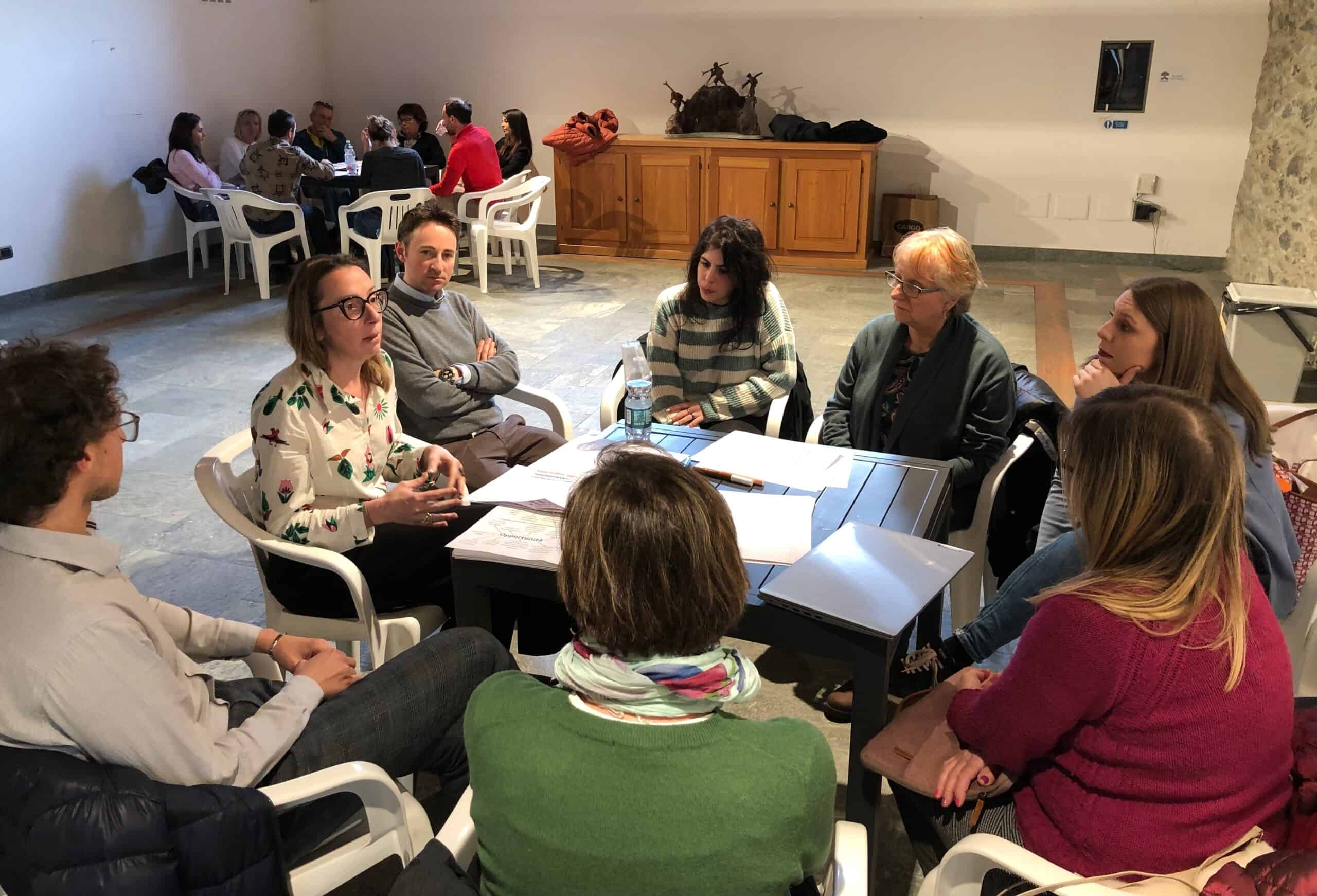Throughout the month of April, Alpsatellites’ partners kept on holding workshops with entrepreneurs, students, regional and local institutions. On 28th of March, in Italy, the Unité des Communes Valdôtaines Evançon and the University of Valle d’Aosta organized a workshop where around 30 stakeholders of the AlpSatellites project discussed the community’s strategic view on telecommuting. Attracting new residents, in particular young couples and families with children, by offering them remote working opportunities was the agreed-upon priority,. Participants also pointed out the importance and the need of an increase in workation offers to boost tourism, in a better knowledge of the area and in a longer stay. Participants discussed also challenges, such as improving public transports, housing market and work-life balance services. The Unité Evançon will soon publish a report on the results of stakeholder consultation. The Austrian partners organized three workshops. During these activities students, young workers and mayors shared their points of view on the core-topics of the project. All participants gave positive feedback about the development of the remote working and the creation of coworking spaces in Austria. Young people highly valued flexibility and freedom that coming with remote working. Some mayors are willing to actively work on more possibilities for remote working, focusing on the well-being and needs of citizens. All participants also pointed out how remote working and coworking spaces will positively affect climate related issues and the development of the whole region. In the French area, the ACSSQ, the AMU and the Association pour le Développement en Réseau des Territoires et des Services completed the first French final report of project with the description of the results of the workshops that they held in March. This report was shared with the project partners. Furthermore, the Aix-Marseille University published the transnational questionnaire and the French stakeholders distributed it to all their networks. The expected results appeared to be many: 95 people have already answered to the questionnaire on 14th of April. The AMU researchers have been holding individual interviews with some local stakeholders in the territory (teleworkers, support initiatives, etc.).



